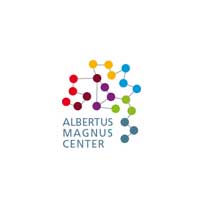Structured doctoral programs
The number of doctoral programmes at the University of Cologne has increased significantly in recent years. The programmes have different formats and forms of funding and therefore have different names (Research Training Group, Graduate School, International Research Training Group, Innovative Training Group, Research School, etc.). Many of these programmes are cooperation projects between the University of Cologne and non-university institutions such as Max Planck Institutes or Helmholtz Centers.
Most structured doctoral programmes focus on specific research trends and topics. If you are interested in this type of doctorate, you should therefore first look for a doctoral programme whose research topic fits well with your own project.
Specified design of doctoral studies
A doctorate in a doctoral programme differs from an individual doctorate in a number of ways. As a doctoral candidate, you are integrated into a clearly defined structure consisting of close supervision, regular interim reports and teaching programmes. All of this is designed to help you plan and swiftly complete your own doctoral project. The programme also provides an opportunity for academic and personal exchange with other academics.
Regular (usually annual) reports or presentations in colloquia and symposia are a further component of many doctoral programmes. On the one hand, you should demonstrate the progress of your work and, on the other, discuss the content of your project with other doctoral candidates and supervisors, especially when presenting in a group. This helps you to recognize any methodological errors or problems at an early stage and take countermeasures if necessary.
Curriculum and optional activities
A range of courses and qualification courses is another feature of doctoral programmes. The range of offered of courses and attendance requirements vary: Some programmes have a fixed compulsory curriculum of subject-related seminars or tutorials, while others recommend attending certain research- or career-oriented courses, but do not make them compulsory.
Supervision
Doctorates in structured programmes are usually supervised by teams of several supervisors. They consist of a first supervisor of the dissertation, who in most cases later also writes the first review of the submitted dissertation, a second supervisor and in many cases a third supervisor and/or a mentor, primarily in an advisory capacity.
Funding for doctoral candidates
If a programme grants positions or doctoral scholarships, these are usually advertised once a year and then awarded for three years.
Many doctoral programmes also support research stays and conference participation abroad and - depending on the programme's financial resources - also provide travel grants. In addition, some programmes offer various individual funding instruments such as funding for lectureships, organized childcare etc.
